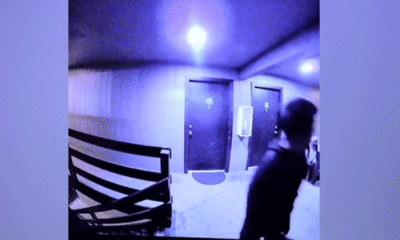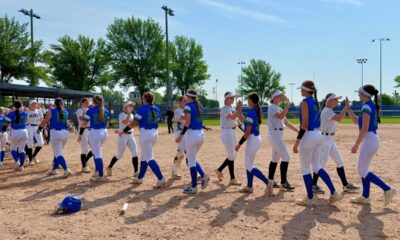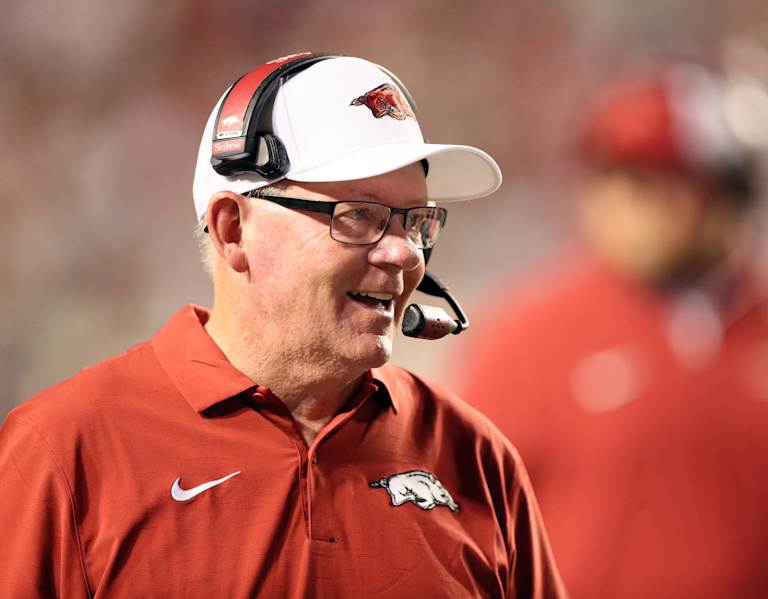This story has been updated significantly since its initial publication.
Pulaski County Circuit Court Judge Herbert Wright today again sided with a group of plaintiffs seeking to halt implementation of Arkansas LEARNS, the state’s landmark K-12 education overhaul.
Arkansas Attorney General Tim Griffin said in a statement that he would immediately appeal the ruling to the state Supreme Court, which earlier this month threw out a temporary restraining order by Wright.
But it was unclear how the state would respond to Wright’s ruling, which was not an injunction but an order stating “findings of fact and conclusions of law.” Asked whether LEARNS was currently in effect, and whether Griffin would instruct the Education Department and other agencies to stop implementing the law, Jeff LeMaster, a spokesman for the attorney general, responded simply: “There’s no injunction blocking LEARNS implementation.”
When the legislature voted on the 145-page LEARNS bill this spring, it included an emergency clause, a piece of language that allows a bill to take effect as soon as it’s signed by the governor rather than going through the the typical 90-day waiting period for new laws. But the House and Senate each voted on the bill and its emergency clause in a single vote, rather than the two votes apparently required by the state Constitution.
The legislature has long held votes in this way, but the practice seems to violate constitutional language mandating “separate” votes on a bill and its emergency clause.
In his order, Wright acknowledged that the case had attracted “the understandable interest of many” but said it “remains a very simple case.”
“The Court finds that the Emergency Clause of the LEARNS Act was not enacted pursuant to the requirements of that Constitution. Since that provision of the law is not effective, all provisions of the Act purported to be immediately effective due to the invalid clause are now effective as of the default date the Act would be effective – August 1, 2023,” he wrote.
The lawsuit was filed by a group of public school advocates and other plaintiffs, including employees of the Marvell-Elaine School District, who object to the state’s plans to hand management of the struggling Arkansas Delta district to a charter school organization as permitted under LEARNS. Other community members in Marvell and Elaine want the charter management plan to proceed, largely because they feel it would keep their district from being consolidated into a neighboring district by the state Board of Education.
Plaintiffs attorney Ali Noland said in a statement that Wright’s ruling was correct. “The official video records of the Arkansas General Assembly show that the legislature failed to follow the Arkansas Constitution when it passed the LEARNS Act,” she said. “The Plaintiffs fully expect Attorney General Tim Griffin to advise the Arkansas Department of Education and all other state agencies to immediately halt application of the LEARNS Act given today’s ruling.”
The reply from Griffin’s spokesman, however, suggests the state could have other plans. As of Friday afternoon, the state Education Department’s LEARNS web portal still appeared to be active. A link to an application for “Education Freedom Accounts,” a controversial school voucher program established under LEARNS, was still functional. And a spokeswoman for Gov. Sarah Sanders said on Twitter that the state would “continue to implement LEARNS.”
Asked how and when the agency planned to comply with the court’s order, an Education Department spokeswoman directed the Arkansas Times to the governor and attorney general. Most pieces of the law have yet to be implemented, but the state has said keeping the law on hold until Aug. 1 — the date that legislation without an emergency clause is scheduled to take effect — would make it difficult for districts to prepare for the upcoming school year.
Wright first put LEARNS on hold on May 26. Griffin quickly appealed to the Supreme Court, but the justices initially declined to stay Wright’s temporary restraining order, instead asking to be briefed on the case.
On June 15, in a 5-2 split decision, the Supreme Court vacated the temporary restraining order and remanded the case back to Wright’s court for resolution, though the ruling was crafted as narrowly as possible — it avoided any discussion of the merits of the case and said only that the plaintiffs wouldn’t suffer “irreparable harm” if LEARNS went into effect, a precondition of an injunction. (The Court’s ruling that the plaintiffs would not suffer irreparable harm may explain why Wright was reluctant to issue an injunction today.) Two justices disagreed, writing in a dissent that the temporary restraining order was valid and the plaintiffs stood a high chance of succeeding on the merits.
Since then, though, the Supreme Court’s makeup has unexpectedly changed: Justice Robin Wynne, one of the two dissents, died last week. The vacancy will be filled by appointment by Gov. Sanders — who considers LEARNS her signature piece of legislation — until judicial elections can be held next spring.
The state has been awaiting a ruling by Judge Wright since a June 20 hearing in which he heard testimony from witnesses including former state Senate Parliamentarian Steve Cook. Cook said legislative staff had at times discussed the question of whether emergency clause votes needed to be held separately from votes on bills. (He told the Arkansas Times after that hearing that he did not recall whether he’d had any such conversations with lawmakers during his time in the Senate.)
Noland, the plaintiffs attorney, also played video recordings of the House and Senate votes on LEARNS at the hearing. They showed only a single roll-call vote was taken in each chamber, not two.
The attorney general’s office argued that the video should not be considered a record of the vote. The official journals of the House and Senate, which memorialize separate votes for the bill and its emergency clause, ultimately are the vote, according to the state. As the official record, the House and Senate journals can’t be contravened by video, even if those recordings illustrate the act of voting occurred just once in each chamber and not twice, the state says.
In his order today, Wright rejected that argument, saying “it is long settled that the judiciary may look beyond the text of the journals of the legislature to determine whether an act has been duly passed.” He drew on an 1882 case in which the state Supreme Court found the legislature had not followed the Arkansas Constitution in passing a bill. At that time, the Supreme Court “found it proper for the lower court not to be bound by the journals, finding that while those journals ‘furnish evidence of legislative proceedings [. . .]Courts are not bound to hold that nothing was done except what appears therein.’”
“For this Court to proceed as if the Journals were incontrovertible proof of the constitutionality of the LEARNS Act’s emergency clause would be to ‘depend on the fidelity with which a journal clerk has made his entries[]’ and ‘render the laws as uncertain as the terms of a horse trade,’” Wright said, quoting again from the 1882 case.
In the end, Wright said, “there is no getting around the fact that the [LEARNS] bill and emergency clause were not voted on by separate roll-call votes in either house.”
The judge also rejected arguments made by the attorney general’s office that the lawsuit should be barred on sovereign immunity grounds or that it represents an improper intrusion into legislative affairs. (Those arguments appear to have traction among some state Supreme Court justices.)
“It is the judiciary’s duty to determine the constitutionality of the Legislature’s actions,” Wright said. Though the LEARNS case is “complicated” by separation of powers issues, he wrote, “the system of checks and balances among the three branches remains … [and] the Constitution places bounds at the outer lanes of each branch’s authority.”
As for sovereign immunity, Wright said, the state cannot assert such a claim if it is acting illegally. “Here, the Plaintiffs have prayed for injunctive and declaratory relief, seeking that the State follow its own Constitution. Sovereign immunity does not entitle the State to ignore that Constitution,” he wrote.
In addition to easing the path to charter school takeovers, LEARNS makes a raft of other changes to Arkansas schools. It will boost starting teacher salaries significantly, though it erodes labor protections for teachers. It also creates a universal voucher program that would direct public school funds towards private, parochial and home school students.
































